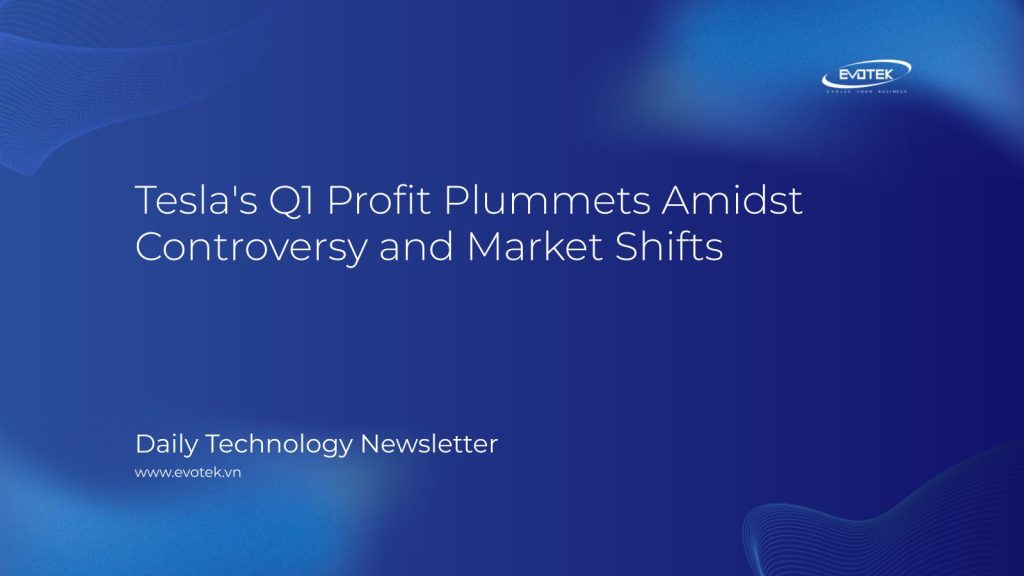NEW YORK (AP) – Tesla’s first-quarter earnings have taken a significant hit, plummeting by 70% as the electric vehicle giant grapples with the fallout from controversies surrounding Elon Musk and intensifying market competition.
The Austin-based company reported a Q1 profit of just $409 million, or 12 cents per share, a stark contrast to analyst expectations. Revenue also saw a decline, dropping 9% to $19.3 billion for the period spanning January to March, falling short of Wall Street forecasts.
These disappointing results come as Tesla faces headwinds from multiple sources. Consumer sentiment has been negatively impacted by Musk’s involvement with a federal government advisory role, sparking protests and dividing public opinion. His support for far-right political figures in Europe has further alienated potential buyers in that key market.
Adding to the challenges, some investors have voiced concerns over Musk’s divided attention, suggesting his advisory role detracts from his leadership at Tesla. There are growing calls for him to either relinquish his CEO position or step down from his advisory role in Washington.
Despite a year-to-date stock decline of over 40%, Tesla shares experienced a slight uptick in after-hours trading following the earnings release.
Seth Goldstein, an analyst at Morningstar, noted that the results were “not particularly surprising” given earlier reports of declining sales that had already impacted the stock. However, he highlighted the company’s continued ability to generate positive cash flow as a positive sign.
Tesla’s upcoming conference call will be closely watched by investors seeking updates on key strategic initiatives. The company is anticipated to launch a more affordable version of its popular Model Y SUV later this year. Additionally, plans are underway to introduce a paid driverless robotaxi service in Austin, Texas, starting in June.
The EV market is becoming increasingly competitive. Chinese EV manufacturer BYD recently unveiled a rapid battery charging system capable of fully charging a vehicle in minutes. Meanwhile, Tesla’s European rivals are introducing new models with advanced technologies, gaining traction as viable alternatives, particularly as Musk’s popularity wanes in the region.
While Tesla is expected to be less affected by the Trump administration’s tariffs due to its primarily domestic production, the company will still face some impact from import taxes on sourced materials. Furthermore, retaliatory measures from China have already forced Tesla to suspend orders from mainland customers for its Model S and Model X models.
Tesla continues to navigate a complex landscape of political headwinds, shifting consumer preferences, and intensifying competition as it seeks to maintain its position in the rapidly evolving electric vehicle market.

 日本語
日本語 한국어
한국어 Tiếng Việt
Tiếng Việt 简体中文
简体中文